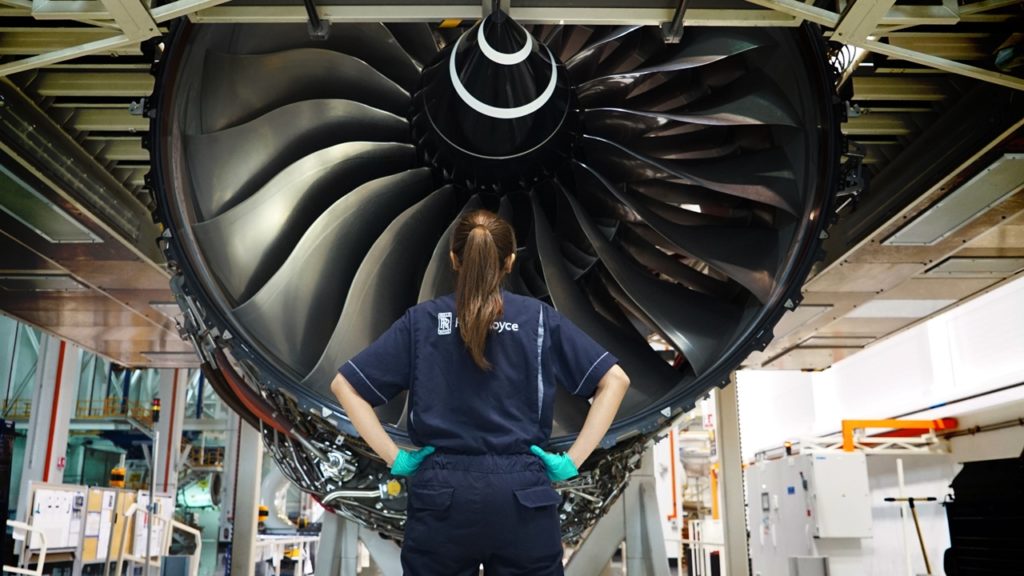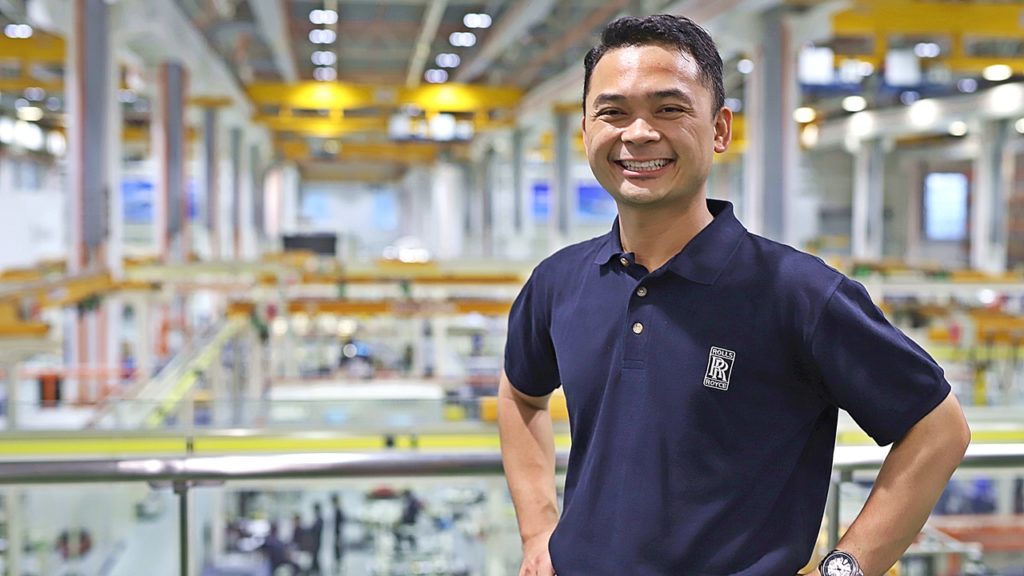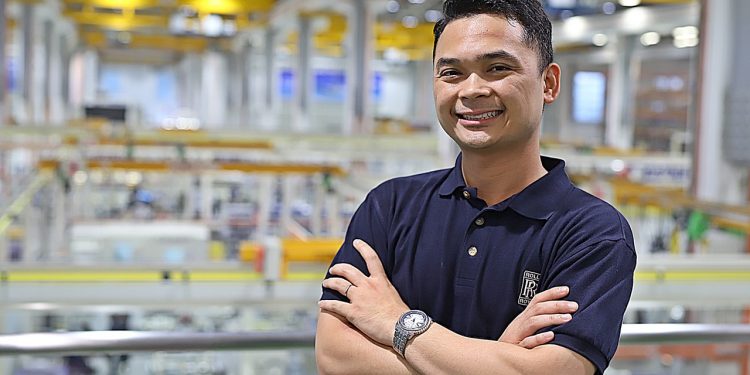Did you know that Rolls-Royce Singapore is the only facility outside of the United Kingdom manufacturing the titanium fan blades used in the Trent engines for jumbo jets such as the Airbus A380 and Boeing 787?
The British company maintains a state-of-the-art facility in Seletar which taps the advantages of digitalisation and adoption of new technologies. This has not only made manufacturing processes safer, it has also enhanced product quality and increased the productivity and efficiency of its workforce.
However, this would not have been possible without Rolls-Royce Singapore’s belief in its workforce, and 29-year-old Assistant Engineer Muhamad Khairuddin (Khai) is a testament to that.
Growing With The Company
“I had expected to work my way up gradually to become an engineer. But things turned out differently as the company provided me with many opportunities to develop myself,” shared Khai, who joined Rolls-Royce Singapore in 2012 as a finishing cell technician at its Fan Blade manufacturing facility.
With the support of his supervisors, Khai was one of the first technicians to be sponsored by the company for a three-year part-time university degree programme in 2015. In recognition of his work experience and new qualification, he was promoted to the role of assistant engineer in January 2018, ahead of his graduation. “I had not expected that I was able to attain a degree so soon. The best part of work for me is being seen in my uniform and being able to tell other people that I’m an assistant engineer with Rolls-Royce Singapore,” shared Khai.

Embracing A New Way Of Work
In his new role, Khai’s job has transformed from being hands-on at the manufacturing floor to one that includes the maintenance of the operator training and competency package, supporting process compliance audits and sustainment of the process Control Plan at the manufacturing facility. The control plan covers a digital dashboard that he monitors and keep up to date with whenever there are improvements.
When asked how technology has changed the way work is done at the facility, Khai responded: “With the transformation and adoption of digital solutions, I have a dashboard on my laptop which gives me a clear overview of my work. Now, I can complete my work more efficiently. I’m better able to do my role as an engineer with the information at my fingertips. I’m also able to understand the processes better with a broader view of data.”
Coping With Change
Fortunately for Khai, these new digital systems were introduced in a structured manner, which made it easy for him to adapt and get used to a more digital way of work. The curriculum in his Degree in Mechanical Engineering was also relevant to his work, which helped in his understanding. The tricky part was before he started school.
“To prepare myself for my studies, I paid my close friends to tutor me on the subjects that I would be taking in school even before my semester started. I feel that it’s my duty to do right by my employers by making this extra effort to do well in school,” he added.
On the work front, Khai could also count on the support of his supervisors, who allowed him flexible work arrangements and tips on time management during his studies. This helped him cope with the demands of juggling shift work, his studies and family commitments.

Making Change Real For Others
As a beneficiary of his company’s support, Khai is viewed as a role model among his colleagues. Khai readily shares his own journey in self-improvement, and encourages fellow colleagues to make use of the training and upgrading opportunities available for their own personal career development.
“The world is changing, we need to also be a part of this change. But it has to start with you and me. For me personally, it is about grabbing opportunities when they come, and embracing them,” he said.
Following Khai’s example, a few of his peers have also been able to successfully embark on company-sponsored training and have benefitted with better work prospects.
What else does he have to sharewith those who are thinking of taking the same steps?
“My principle in life is to not look back with regret at what I did not do. Being surrounded by family and friends who are doing well, I was also inspired to grow. I did not want my ITE background to stop me from achieving my potential. It is possible to achieve success in Singapore; we just need to put in the effort, especially when I have the support of a company like Rolls-Royce Singapore.”

